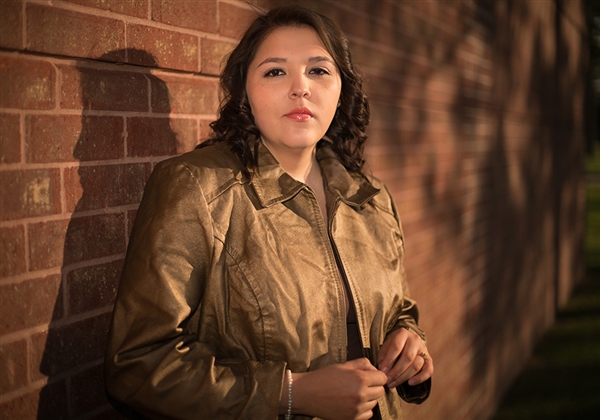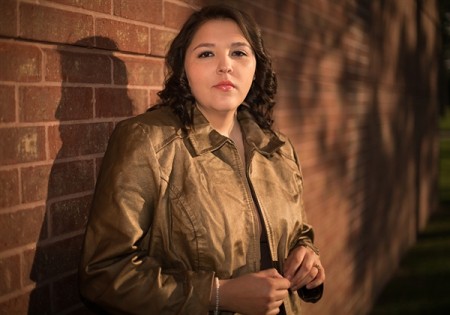TOMBALL, Texas—When Rachel Bradshaw-Bean claimed she had been raped in the band room of her high school in Texas, school officials sprang into action—and kicked her out of school.
“I felt like a criminal,” she said, describing the December 2010 incident in her first extended interview on the crisis and aftermath. Accused of “public lewdness,” she was sent to a special school for students with discipline problems, along with the boy she said had assaulted her. “I saw him there all the time,” she said.
It’s not an isolated incident. The events at Henderson High School in East Texas demonstrate the obstacles girls sometimes face when reporting sexual violence in schools. “High schools across the country are failing to live up to their responsibility to address sexual assault and harassment,” said Neena Chaudhry, an attorney with the National Women’s Law Center, a nonprofit advocacy group in Washington, D.C. “There’s no excuse.”
Bradshaw-Bean and her family fought back, sparking a Department of Education probe into whether the school had violated Title IX, the federal law prohibiting gender discrimination in education. Under the law, schools must follow specific rules when a student reports sexual violence; those rules include launching an internal investigation separate from any police inquiry. Henderson High School relied solely on a police investigation that deemed the sex consensual.
Today, with reports of teen sexual assault making national headlines, Bradshaw-Bean, now 20, said she is speaking out so that girls know their rights and schools properly address reports of sexual violence. “I don’t want anyone else to have to go through what I did,” she said. Her battle to clear her name, while navigating a disciplinary school that treated her “like a prisoner,” she said, changed the course of her life.
‘It kills you. You die’
Curled up in an armchair in her apartment in Tomball, on the outskirts of Houston, she described her life before the crisis blew it up. She enjoyed playing the euphonium in band. She volunteered with the Key Club around Henderson, a scenic town known for its historic homes and a syrup festival. She raised chickens as a member of Future Farmers of America. She planned to study pre-med in college.
Raised in the Church of Jesus Christ of Latter Day Saints, she said her mother and stepfather taught her to be modest, polite. She and her mother are close and talk often. “My mom is so polite and classy—and also a hardcore rocker,” she said. “She likes Metallica.” Bradshaw-Bean hadn’t had much experience with boys, just one boyfriend. During her junior year, she said, a boy in band had suggested she give him a “blow job” and she didn’t know what that meant so she went home and asked her mother.
Midway through her senior year, on December 6, 2010, an otherwise normal day turned chaotic. She was hanging around school at day’s end, she said, waiting for a Key Club meeting to start. A boy asked her to go into the band room to talk and she went; he was a year younger, she said, and she didn’t know him well. In the room, she said, things took a violent turn and he raped her. She said she distinctly recalls saying no. Afterward, she said, “I was crying. I pulled my pants up and went to the bathroom to clean myself up.”
She then went to an assistant band director, she said, telling him what had happened. His words stunned her: “He told me to work it out with the boy. There’s no way I would do that. But I didn’t know what to think. I was 17.”
Feeling “shocked and numb,” said Bradshaw-Bean, she went to her Key Club meeting that evening. Then she went to a band meeting, where her mother, stepfather and seven-year-old brother joined her. The boy from the band room was there too, she said, with his mother. Bradshaw-Bean sat silently through it.
“I didn’t tell my parents. I didn’t want them to have to go through that,” she said, looking down at a Rubik’s Cube that calms her in times of stress. She stayed home from school the next day, she said, then went back a day later and told a friend what had happened. The two girls together told another assistant band director. This time, the news got to an assistant vice principal. The school called the police and her parents. When her mother arrived at the school, Bradshaw-Bean said, “she had this look in her eyes, like she had died.”
Her mother, Colleen Chevallier, echoes that sentiment. “It kills you. You die. You stay dead for a while,” she said. “You become another person. I’m not the same person I was before this.”
Expert: Schools don’t know the rules
There were some 3,800 reported incidents of sexual battery and 800 reported incidents of rape or attempted rape in public high schools in the 2007-8 school year, according to a Department of Education letter to educators in 2011. (The department sends such letters periodically to issue policy guidance.) Calling the sexual violence a “call to action for the nation,” the department reminded schools of their Title IX responsibilities, including the obligation to launch an internal investigation into reports of sexual assault to ensure a safe environment for students. Another requirement: appointing a Title IX coordinator to ensure compliance with the law.
The problem, said Sandra Park, an attorney with the American Civil Liberties Union, is that educators don’t necessarily know the rules. For instance, she said, the Title IX coordinator is often a school employee with other responsibilities who “just wears that additional hat” and doesn’t have a firm grasp of the law.
The Department of Education’s Office for Civil Rights said it has received 59 complaints that include Title IX allegations related to sexual violence this year, up from 33 such complaints in 2012. The complaints are from all educational levels, from elementary to postsecondary.
In one case similar to Bradshaw-Bean’s, the office ruled last year that Forest Hills Central High School in Michigan had failed to properly respond when a girl said she was sexually assaulted in the band room. The parents say the principal had discouraged them from filing criminal charges against the boy, an athlete. (The family did file charges and the boy pleaded guilty, according to the National Women’s Law Center, which is now working with the family on a suit against the school.) Superintendent Daniel Behm said the school district “strongly disagrees” with aspects of the Department of Education findings, and that the school immediately called the police and parents when the assault was reported.
In Ohio, the Steubenville school district is under fire in a high-profile case in which two high-school football players raped a girl during a night of postgame partying. The boys were convicted this past spring. Last month, four current and former employees of Steubenville City Schools were indicted in a grand jury investigation into a possible cover-up of the crime. One is the superintendent, charged with obstructing justice and tampering with evidence, among other charges. A fifth school employee was indicted a month earlier.
Among the obstacles teenage girls face are deep-rooted misogynistic views on rape, said Park. “We’ve accepted a lot of victim-blaming,” she said. “We’re so intent on scrutinizing what the victim did, not the perpetrator’s actions.” She added, “In high schools, the students are so young, I think people are also loath to believe kids could be confronting this kind of violence.” But they are. Forty-four percent of rape victims in America are under the age of 18, according to the nonprofit Rape, Abuse, and Incest National Network.
Burden of proof
When Bradshaw-Bean got the attention of school officials, she was sent to a children’s health clinic for a medical exam. NBC News obtained a copy of the medical report, which showed lacerations to the hymen and bleeding “consistent with information given per victim,” the report said.
A forensic specialist who works with the police interviewed Bradshaw-Bean at the clinic, according to Michael Jimerson, the Rusk County district attorney. Bradshaw-Bean said she felt numb during the interview, not crying—which she thinks worked against her with the police. “I just felt like I couldn’t cry anymore,” she said. “I was just taking in so much.”
Visit NBCNews.com for breaking news, world news, and news about the economy
Keep Reading







